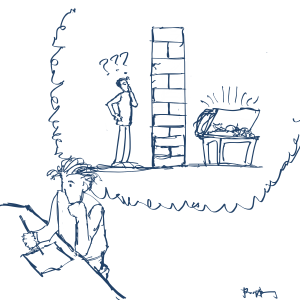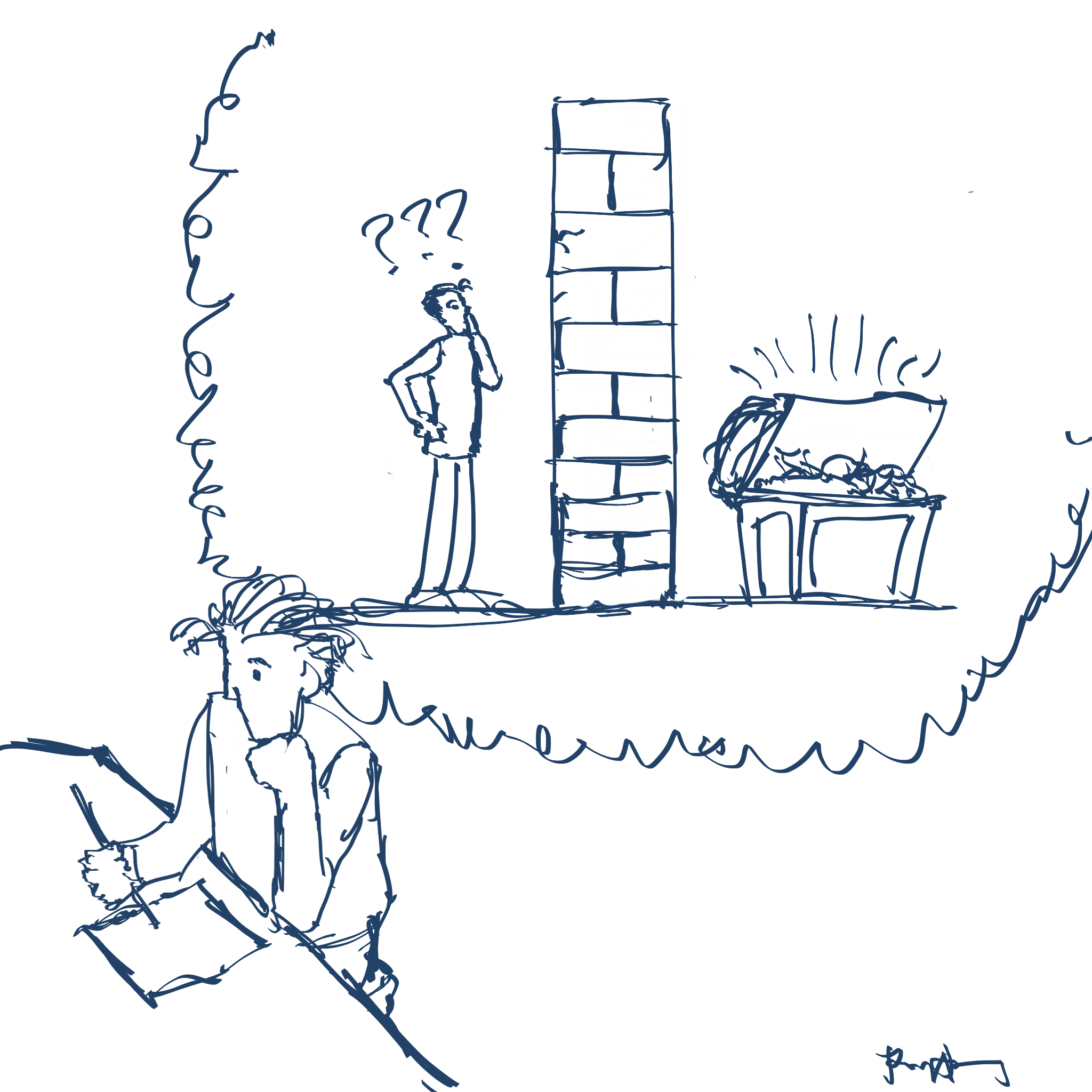Often I have these days where I’m supposed to be writing something or drawing something or coding something and I just can’t get to it. Some kind of mental block makes it difficult. And you try to focus your mind and clear your thoughts, but it just doesn’t help. Here are some ideas for how to get past mental blocks.

- Toss out ideas that weren’t working and start over. One example is today’s blog post. I promised myself I would be posting regularly, so I had to have one today. But after a couple of failed attempts that just couldn’t come together, I had to stop and ask myself what was wrong. I just wasn’t in the mood for any of the other serious topics I wanted to write about so I said screw it, I’ll just write about mental blocks!
- **Phone it in. **If you’re unfamiliar, the expression means “just do the bare minimum you’re allowed to do.” Just power through the work with as little effort as possible. You can always go back and edit it later if you want! I often do this with the daily sketches – I try to stay on theme and at the same time find something interesting or clever to draw. But I’m not always successful, and I sometimes don’t have enough time. So I’ll just draw whatever that barely makes the theme and send it in.
- If you have some time, step away from the work for a bit. Take a shower. Poop. Argue with people over the internet. Watch some Brooklyn Nine Nine. Play some _Skyrim. _Just get your mind off the work. It gives your subconscious mind a chance to work on the problems in the background and later you can come back to the work with fresh eyes and hopefully better ideas.
- Cheat. Find someone who’s done something similar before and copy, er I mean, draw inspiration from her work!
- Make a long list of ideas. Just random, stupid, ideas, as many as you can think of, as soon as they pop into your head. You’re throwing spaghetti at the wall and trying to see what sticks!
- Do the easy stuff first, then get back to the hard stuff later. I did this during my Nanowrimo this year! Whenever I had too much difficulty writing a scene, I would set it aside for a while and choose some other scene that I had already mostly plotted out in my head. You might think “Doesn’t that just mean I’ll have more hard stuff to do later?” Yes, yes it does, but also means that hard stuff will have a whole lot of easy stuff already written to support it, which can make things easier.
- **Use random content generators. **There’s a bunch of them on the internet! For writing, I sometimes use random name generators to help me out. There’s also random plot generators and random dialogue generators and so on. Most of the time you’ll get nonsense, but just clicking through those nonsense options can give you an inspiration for your own creative needs.
- **Change it up. **If you’re drawing, try drawing in a different style than you usually do. If you’re writing a story, try to throw in a random scene that’s a completely different style and makes no sense. If you’re blogging, write a post about something you’ve never written about before, or in a style you’ve never used. Like a listicle!
- **Ask for help. **In software development, there’s a concept called “Rubber Duck Debugging”, or sometimes simply “Rubber Ducking”. The idea is that by asking other people for help, even if the other person is completely useless, the mere act of describing your problem helps you think through it and unlocks new ideas. As a bonus, sometimes the other person can actually be helpful!


See Also